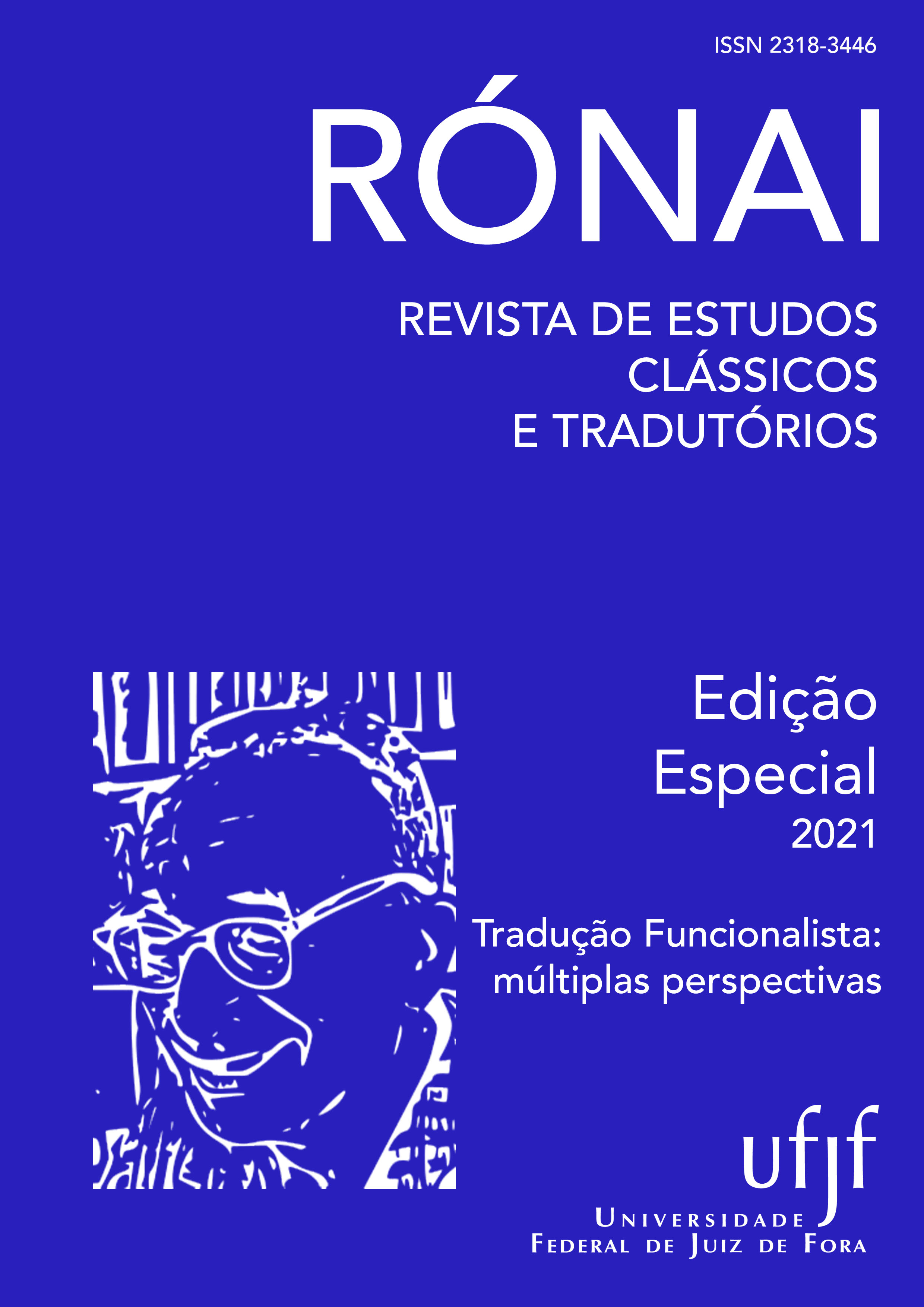Translation as an ally in teacher training and English language teaching
DOI:
https://doi.org/10.34019/2318-3446.2021.36254Keywords:
translation, English language teaching, English Teaching Education ProgramAbstract
Until today, foreign language teaching (FL) and translation seem to be two immiscible fields, and mixing them is seen with stigma by a portion of teachers, students, and the community in general. This may result from beliefs repeated over the years, without a real questioning of the reasons that led to translations being abolished from the FL classroom. Thus, the purpose of this article is to present a brief theoretical overview of translation applied to the FL teaching (LIBERATTI, 2012), to then introduce the paths we followed in a workshop to undergrad students of the English Teaching Education Program at Universidade Estadual de Londrina in 2021 entitled The translation in the English language classroom: implications and applications. Thereby we sought to show future English Language teachers that translation can be an ally when it comes to FL teaching. In the end, we observed that students had demystified their beliefs regarding the use of translation in FL teaching, seeing it as an ally to their methods.
Downloads
References
CADERNO Informativo 2019. 2019. Disponível em: <http://www.uel.br/col/lem/portal/pages/arquivos/CADERNO-DE-PROJETOS_2019.pdf>. Acesso em: 19 de outubro de 2021.
COOK, G. Language Teaching. In: BAKER, M. (ed.). Routledge Encyclopedia of Translation Studies, London – New York, Routledge, 1998, p. 117-120.
DUARTE, M. O. Aspectos conceituais da tradução. In: XI Simpósio Nacional e I Internacional de Letras e Linguística, 2008, Uberlândia/MG. XI Simpósio Nacional e I Internacional de Letras e Linguística. UBERL NDIA: EDUFU, p. 1787-1792, 2008.
FRANCO AIXELÁ, J. Itens culturais-específicos em tradução. Tradução Mayara Matsu Marinho e Roseni Silva. In-Traduções, Florianópolis, v. 5, n. 8, p. 185-218, 2013. Disponível em: http://incubadora.periodicos.ufsc.br/index.php/intraducoes/article/viewFile/2119/2996. Acesso em: 25 de outubro de 2021.
GRILLI, M. Como ensinar línguas? Do método ao pós-método. Projekt (Curitiba), v. 57, p. 36-41, 2019.
JAKOBSON, R. Linguística e Comunicação. São Paulo: Editora Cultrix, 1999.
LEFFA, V. J. Metodologia do ensino de línguas. In: BOHN, H. I.; VANDRESEN, P. Tópicos em linguística aplicada: O ensino de línguas estrangeiras. Florianópolis: Ed. da UFSC, 1988, p. 211-236.
LIBERATTI, E. A tradução na sala de aula de LE: (des)construindo conceitos. Entrepalavras, Fortaleza, ano 2, v. 2, n. 1, p. 175-187, jan./jul. 2012.
LIBERATTI, E. Traduzindo Histórias em Quadrinhos: proposta de Unidades Didáticas com enfoque funcionalista e com base em tarefas de tradução. 2017. 447 p. Tese (Doutorado em Estudos da Tradução) – Programa de Pós-Graduação em Estudos da Tradução, Universidade Federal de Santa Catarina, Florianópolis, 2017. Disponível em: <https://repositorio.ufsc.br/xmlui/handle/123456789/181611>.
NEVES, F. Expressões idiomáticas, 2020. Disponível em: https://www.normaculta.com.br/expressoes-idiomaticas/. Acesso em: 17 de outubro de 2021.
SOUZA, J. P. D. Teorias da tradução: uma visão integrada. Revista de Letras, Fortaleza, v. 20, n. 1/2, p. 51-67, jan./dez. 1998.
SOUZA, J. P. D. Tradução e ensino de línguas. Revista do GELNE, ano 1, v. 1, p. 141-151, 1999.
Downloads
Published
How to Cite
Issue
Section
License
Copyright (c) 2022 Elisângela Lorena Liberatti

This work is licensed under a Creative Commons Attribution 4.0 International License.
Copyright
The authors of the published contributions agree with the following items:
1. The authors keep the copyright and convey to the journal the right of first publication, the work being licensed under a Creative Commons Attribution License 4.0 International.
2. The authors are allowed and stimulated to publicize and distribute their work online after the publication in the journal, recognizing first publication in this journal.
3. The authors of the approved works authorize the journal to distribute their content, after publication, for reproduction in content indexes, virtual libraries and similars.
For more information about Creative Commons Attribution License 4.0 International, please, go to: https://creativecommons.org/licenses/by/4.0/deed.en
Editorial exemption
The authors of the published contributions are entirely and exclusively responsible for their contents. Its content does not represent an official position of Rónai - Revista de Estudos Clássicos e Tradutórios neither of Faculdade de Letras da Universidade Federal de Juiz de Fora or their partner institutions.



